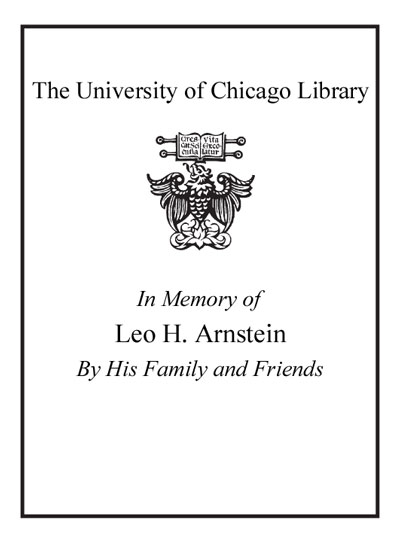Review by Choice Review
Pinker (Massachusetts Institute of Technology) offers neuroscientific and behavioral evidence to support his argument that individuals are more influenced by nature (biology) than by nurture (experience). In doing so he opposes postmodernism, identity politics, and the soul--acknowledging those points of view but marshaling evidence and logic against them. His conclusion--that there is a common and universal human nature--has ethical and moral implications for freedom, the arts, feminism, violence, and child rearing. Including a great deal of material from many cultures and continents, this book (with its 60 pages of endnotes, references, and index) offers a rewarding reading experience. ^BSumming Up: Highly recommended. Graduate students, researchers, faculty, and broadly educated lay readers. R. A. Drake Western State College of Colorado
Copyright American Library Association, used with permission.
Review by Publisher's Weekly Review
In his last outing, How the Mind Works, the author of the well-received The Language Instinct made a case for evolutionary psychology or the view that human beings have a hard-wired nature that evolved over time. This book returns to that still-controversial territory in order to shore it up in the public sphere. Drawing on decades of research in the "sciences of human nature," Pinker, a chaired professor of psychology at MIT, attacks the notion that an infant's mind is a blank slate, arguing instead that human beings have an inherited universal structure shaped by the demands made upon the species for survival, albeit with plenty of room for cultural and individual variation. For those who have been following the sciences in question including cognitive science, neuroscience, behavioral genetics and evolutionary psychology much of the evidence will be familiar, yet Pinker's clear and witty presentation, complete with comic strips and allusions to writers from Woody Allen to Emily Dickinson, keeps the material fresh. What might amaze is the persistent, often vitriolic resistance to these findings Pinker presents and systematically takes apart, decrying the hold of the "blank slate" and other orthodoxies on intellectual life. He goes on to tour what science currently claims to know about human nature, including its cognitive, intuitive and emotional faculties, and shows what light this research can shed on such thorny topics as gender inequality, child-rearing and modern art. Pinker's synthesizing of many fields is impressive but uneven, especially when he ventures into moral philosophy and religion; examples like "Even Hitler thought he was carrying out the will of God" violate Pinker's own principle that one should not exploit Nazism "for rhetorical clout." For the most part, however, the book is persuasive and illuminating; extensive review coverage and a 10-city author tour should bring it into E.O. Wilson and Stephen Jay Gould territory in terms of sales. (Sept. 30) (c) Copyright PWxyz, LLC. All rights reserved
(c) Copyright PWxyz, LLC. All rights reserved
Review by Library Journal Review
Pinker moves from How the Mind Works to how human nature works, offering a theory that ably blends instinct and choice. (c) Copyright 2010. Library Journals LLC, a wholly owned subsidiary of Media Source, Inc. No redistribution permitted.
(c) Copyright Library Journals LLC, a wholly owned subsidiary of Media Source, Inc. No redistribution permitted.
Review by Kirkus Book Review
The well-published MIT cognitive scientist and linguist (How the Mind Works, 1997, etc.) takes on one of philosophy's thorniest problems in this lucid view of what makes humans human. Against scholars and ideologues of the left and right, Pinker offers a profoundly biological view of human nature, even if his descriptions of what make us tick sometimes sound as if they're straight out of a software manual. Pinker describes the brain, for instance, as a set of data-processing modules, "with many parts cooperating to generate a train of thought or an organized action. It has distinct information-processing systems for filtering out distractions, learning skills, controlling the body, remembering facts, holding information temporarily, and storing and executing rules." Far from a tabula rasa, the brain is hard-wired with genetic information millennia old, governing our responses to events: altruism here, perhaps, or violence there. Psychologists believe that the human personality is variable in only five general dimensions, each governed by genetics: "we are to varying degrees introverted or extroverted, neurotic or stable, incurious or open to experience, agreeable or antagonistic, and conscientious or undirected." (A shy, neurotic, agoraphobic, narcissistic, and wholly unreliable person, then, can take comfort in blaming his or her unpleasant makeup on generations of ancestors.) The implications of the biological view are many and large, and thus are the subject of fierce debate: if we are but a set of electrochemical circuits heavily programmed to behave according to a simple set of rules, then free choice and moral responsibility go out the window. Yet, Pinker remarks before examining the political and philosophical consequences of this position, "Nothing prevents the godless and amoral process of natural selection from evolving a big-brained social species equipped with an elaborate moral sense"-perhaps too much moral sense, he adds. His conclusions won't please exponents of several camps, Christian conservatives and what he calls "gender feminists" among them, but he ably defends his ground, and with a minimum of jargon and scholarly sophistry. A rich, sophisticated argument that may leave pious souls a little uneasy. Author tour
Copyright (c) Kirkus Reviews, used with permission.
Review by Choice Review
Review by Publisher's Weekly Review
Review by Library Journal Review
Review by Kirkus Book Review


